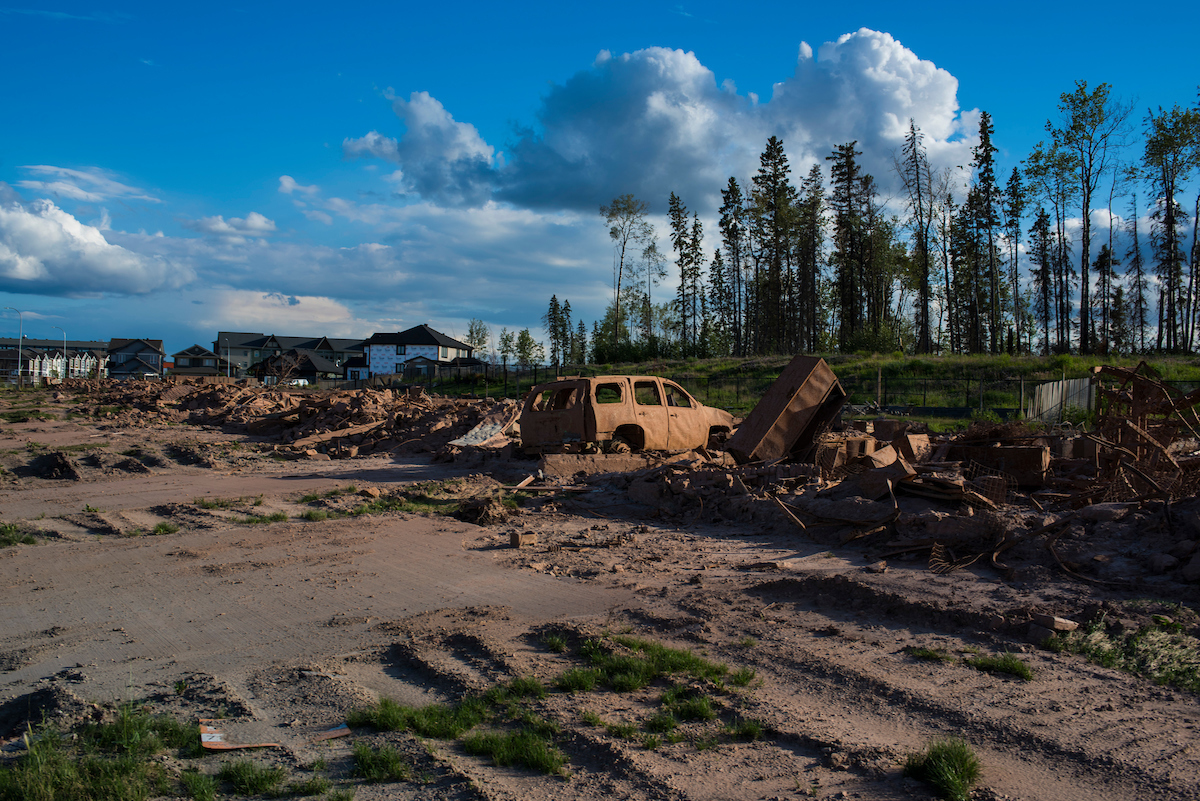
In May 2016, a wild fire swept through Fort McMurray, Alberta. The fire destroyed nearly 2500 homes and buildings and triggered the largest wildfire evacuation in Alberta history. Photo credit: John Ulan
Alberta has seen more than its fair share of devastating natural disasters in the last decade-the 2011 fires in the Town of Slave Lake, the 2013 Southern Alberta floods, and most recently, the 2016 Fort McMurray wildfires. In fact, the majority of the most costly disasters in Canada have occurred here in Alberta.
When it comes to planning for and minimizing risk from natural disasters, PhD student Lynne Njeri Mbajiorgu knows we need to think way, way ahead.
"My research focuses on the transformation of planning processes in response to floods, wildfires, and droughts," explains Mbajiorgu, a professional land use planner by trade. "Specifically, I am looking at how we can adapt our plans and planning tools to better mitigate risks. We don't want to build a community back to a state of risk. We want to build forward-thinking, safer, and healthier communities in advance of natural disasters."
Building forward
As part of her research, Mbajiorgu will investigate if and how local zoning bylaws, as well as municipal development plans, changed after natural disasters in Alberta, including why they did or did not change and how local development decisions are different given known hazard risks.
But being proactive and resilient isn't as simple as it sounds.
"We want to build forward-thinking, safer, and healthier communities in advance of natural disasters." -Lynne Njeri Mbajiorgu
In all these cases, land use planners, as well as other professions such as emergency management, engineering, building industry, insurance, non-governmental organizations and higher levels of government, all have a role in post-disaster recovery and reconstruction. Local governments typically play the greatest role in mitigation efforts, as they are the closest level of government to residents, businesses, and communities.
"We want to build resilient, proactive communities," says Mbajiorgu. "When it comes to recovery after disasters, we must ask ourselves if we want to build back or build forward in our communities-and having well-trained professional planners at the helm is a critical part of doing so."
Training the next generation of professionals
Interested in community resilience in the face of economic, social, and environmental challenges?
The Department of Earth and Atmospheric Sciences in the University Of Alberta Faculty Of Science is pleased to offer a new master of science (MSc) program in urban and regional planning, beginning in Fall 2017.
"This program strives to inspire and challenge our students to work with the local community and stakeholders and helps to create vibrant, sustainable, and inclusive communities," says Sandeep Agrawal, professor and director of the program. "Students will study today's issues of climate change, winter cities, northern resource towns, and indigenous communities, as well as explore how these factors relate to planning and development. It will prepare them to hit the ground running as soon as they land a planning position."
Designed in accordance with professional accreditation standards, the MSc in planning program prepares students for a career in land use planning and policy development. Applications close on March 31, 2017. For more information, check out the open house on February 9. Details available on planning.eas.ualberta.ca